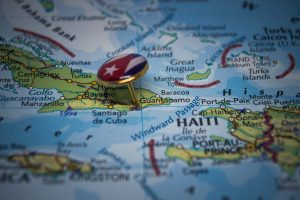Two Malaysian citizens, Mohammed Farik bin Amin and Mohammed Nazir bin Lep, have languished in the American Guantanamo Bay detention camp for the past 21 years. Calls for their release have grown in recent years. Farik was arrested in June 2003, while Nazir was arrested in August 2023. Nazir was detained at the same time as Hambali, a key Jemaah Islamiyah (JI) leader who masterminded the 2002 Bali attacks. Both Farik and Nazir had been members of the JI terrorist group and in early 2024 pleaded guilty to playing roles in the Bali bombings. The prospects for an early return home now hinge on diplomatic communications between the U.S. and Malaysian governments
Arrest and Trial
Farik and Nazir were first held at CIA black sites, which were notorious for torturing terror suspects. Allegedly, both had been tortured before their transfer to Guantanamo Bay in 2006. After their transfer, both appeared before the Combatant Status Review Tribunals, after which they were not heard of until August 2016, when their cases were heard by the Periodic Review Boards. In 2016, it was also reported that discussions had been taking place between the Malaysian government and the then-Obama administration over the two detainees. It was only in 2017 that formal charges were filed against them by the American military prosecutors, but these were rejected by Pentagon officials for undisclosed reasons. It was only in 2021 that the Malaysian duo appeared before a judge, but then the trial ran into issues as there were problems with the court interpreter.
In October 2023, both Farik and Nazir had their cases separated from that of Hambali, as they had agreed to plead guilty to being accessories to the 2002 Bali bombings. Plea deals are thought to have been facilitated during a visit to Guantanamo Bay in 2023 by a Malaysian delegation that included Home Minister Saifuddin Nasution Ismail and Police Inspector General Razarudin Husain. Following this, both were given trial dates in January 2024. As part of the plea deal, they had charges related to the 2003 Jakarta Marriott Hotel bombing dropped. A military jury sentenced them to 23 years in confinement and because of the plea deal, they could be released by 2029.
Challenges and Implications
While it is a positive sign that Malaysia is taking responsibility and having these two men repatriated, there are many challenges that will likely follow. The controversial manner in which the U.S. has incarcerated terrorism-related detainees, most of them non-American citizens, for so long and under harsh conditions, has generated antagonistic sentiments towards the U.S. and the West, and served as a powerful source of radicalization for extremists elsewhere, including in Southeast Asia.
Both Farik and Nazir would have embellished their status as powerful figures in the jihadi world. In jihadist circles, there is a great likelihood that both will be hailed as “heroes” and “jihadi knights” for surviving Guantanamo Bay under brutal circumstances and returning home to Malaysia alive. They will be able to share their own versions of how they were tortured in Guantanamo Bay at the hands of the “infidel” Americans, something that has the potential to be used as a narrative by Muslim radical and extremist groups.
A major argument for and justification of Islamist-related terror acts is the “unjust” world most Muslims live in, and the experience of both Farik and Nazir would be a powerful living testimony of this narrative. Both Farik and Nazir could become powerful symbols and magnets for jihadism in Malaysia, all the more following the recent terror attack in Ulu Tiram. Hence, it would be Malaysia’s utmost duty to closely monitor their movements and interactions in Malaysia, including possibly with foreign jihadists. Their interaction with the “wrong crowd” could open the door to converting new individuals to the jihadi cause or even play a role in recidivism for former extremists and terrorists.
While it is important for Malaysia to take care of its citizens, including those detained abroad for transnational crimes, the detention of both Farik and Nazir is not a simple case of crime and punishment. The return of Farik and Nazir to Malaysia is to be welcomed but also brings many risks that will need to be factored in by the authorities. Mostly, their cases represent a lesson for all who are involved in terrorism and what governments can and cannot do. It is the responsibility of Malaysia that as high-risk individuals, both men go through a rigorous rehabilitation and deradicalization program.
Malaysia, in its past wars with communists and various other radical groups, has historically developed well-tested and effective tools to deradicalize and, more importantly, to rehabilitate and integrate such individuals into the society at large. In view of various extremist groups linked to the JI and the so-called Islamic State as well as other radical groups operating in the country, Malaysia must demonstrate its ability to rein in such individuals who were involved in serious crimes in the past so as to ensure their long-term rehabilitation.
This will provide continued confidence in Malaysia’s counter-terrorism and deradicalization policies as well as serve as a reminder to other governments in the region, who are contemplating bringing home their hardcore radical citizens, about the holistic efforts and resources needed to transform their once erstwhile citizens into good and productive members of society.
































